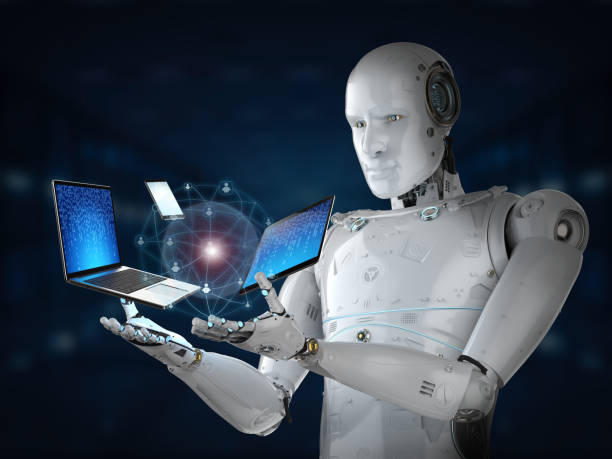
What is Artificial Intelligence? AI vs Traditional Software
What is Artificial Intelligence? AI vs Traditional Software
Artificial Intelligence (AI) has quickly transitioned from the realms of science fiction into an integral part of our daily lives. It’s behind the smart assistants on our phones, advances in medical treatments, and even self-driving cars. As AI’s influence expands across various industries, it’s essential to understand how it compares to traditional software. This article will delve into the fundamental concepts of AI vs traditional software, highlighting their unique characteristics and potential future developments.
Artificial Intelligence (AI) represents a major technological breakthrough with its ability to perform tasks that typically require human intelligence, such as speech recognition, decision-making, and learning. Unlike traditional software, which follows a set of predefined rules, AI systems learn and adapt from data. As we explore the differences between AI and traditional software, we’ll uncover why AI is becoming increasingly pivotal in modern technology.
What is Artificial Intelligence?
At its core, Artificial Intelligence (AI) is about creating machines that can simulate human intelligence. This includes learning from experience, understanding complex content, and making decisions. AI aims to equip machines with capabilities like problem-solving, recognizing patterns, and adapting to new information, which are traditionally associated with human cognition.
Types of AI
AI can be classified into three main categories, each representing different levels of complexity and capability:
Narrow AI
Weak AI, or narrow AI, is used to create specialized systems, like streaming platform recommendation algorithms or virtual assistants like Alexa or Siri. These systems excel in their designated areas but lack general intelligence and cannot perform tasks outside their programmed functions.
General AI
A theoretical system with human-like intelligence for a variety of activities is referred to as general artificial intelligence (AI). This form of AI would understand, learn, and apply knowledge broadly, similar to human cognitive abilities. However, General AI remains a goal rather than a reality, as current AI systems are far from achieving this level of sophistication.
Super AI
In every domain, such as creativity, general knowledge, and problem-solving, super AI outperforms human intellect. It is still a futuristic idea that is frequently examined in science fiction. Super AI has the potential to drastically change society and industry, bringing with it both benefits and challenges.
.
How AI Works
The functionality of AI is driven by several key methodologies:
Machine Learning
Machine Learning (ML) is a subset of AI that involves systems learning from data to improve their performance without being explicitly programmed. ML algorithms identify patterns and make predictions based on input data, leading to continuous improvement over time.
Deep Learning
Deep Learning is a specialized branch of ML that uses artificial neural networks to process data in intricate ways. These networks, inspired by the human brain’s structure, are particularly effective in handling large volumes of unstructured data, such as images and speech.
Natural Language Processing (NLP)
Natural Language Processing (NLP) enables AI to understand and generate human language. This technology powers applications like chatbots, language translation services, and voice-activated assistants, making communication between humans and machines more seamless.
Applications of AI
AI’s versatility is evident in its wide range of applications across various sectors:
Healthcare
In healthcare, AI aids in diagnosing diseases, personalizing treatment plans, and speeding up drug discovery. AI systems can analyze medical images, predict patient outcomes, and even suggest new research hypotheses, significantly improving healthcare delivery and outcomes.
Finance
In the finance sector, AI enhances fraud detection, enables algorithmic trading, and improves customer service. By analyzing transaction patterns, AI can detect anomalies and suggest preventive measures, making financial systems more secure and efficient.
Automotive
AI is driving the development of autonomous vehicles and advanced driver-assistance systems. These technologies rely on AI to interpret sensor data, navigate roads, and make real-time decisions, ensuring safety and efficiency in automotive systems.
E-commerce
In e-commerce, AI personalizes shopping experiences through recommendations, manages chatbots for customer service, and optimizes inventory and pricing strategies. This leads to more engaging and efficient online shopping experiences for customers.
Advantages of AI over Traditional Software
AI offers several advantages over traditional software, making it a more dynamic and powerful tool in various applications:
Adaptability
AI systems can learn and adapt to new situations and data, unlike traditional software, which operates based on static rules. This adaptability makes AI particularly valuable in environments where conditions change rapidly and unpredictably.
Efficiency
AI can handle complex tasks with remarkable speed and accuracy. For example, AI-powered diagnostic tools can analyze medical images much faster than human radiologists, reducing the time required for diagnosis and increasing overall efficiency.
Decision Making
AI systems excel in making decisions based on data analysis and patterns. They can process vast amounts of information to identify trends and insights that would be challenging for humans or traditional software to discern, leading to smarter and more informed outcomes.
Limitations and Challenges of AI
Despite its potential, AI also faces significant challenges and limitations:
Ethical Concerns
AI systems can exhibit biases if trained on biased data, leading to unfair or discriminatory outcomes. There are also concerns about job displacement as AI automates tasks traditionally performed by humans, raising important ethical and societal questions.
Data Dependence
The performance of AI systems is heavily reliant on the quality and quantity of data they are trained on. Poor data quality can lead to inaccurate predictions and decisions, highlighting the importance of high-quality data in AI applications.
Security Risks
AI systems can be vulnerable to cybersecurity threats. For example, adversarial attacks can manipulate AI models into making incorrect decisions by subtly altering input data, posing significant security risks.
Traditional Software: Characteristics and Limitations
Traditional software operates based on predefined rules and commands, which limits its ability to adapt and learn:
Fixed Rules
Traditional software executes tasks based on a set of static rules defined by programmers. It does not have the capability to modify these rules based on new data or experiences, making it less flexible compared to AI.
Less Adaptive
Since traditional software cannot learn from data, it struggles to adapt to changing conditions or unexpected scenarios. This lack of adaptability limits its effectiveness in dynamic environments.
Limited Complexity
Traditional software often struggles with handling complex, unstructured data. Tasks that involve pattern recognition or decision-making based on vast amounts of data can be challenging for traditional software to manage effectively.
AI vs Traditional Software: A Comparison
When comparing AI vs traditional software, several key differences stand out:
Flexibility
AI’s ability to learn and adapt allows it to handle dynamic and unpredictable environments. In contrast, traditional software remains rigid, bound by its initial programming and unable to evolve with new data or conditions.
Speed and Accuracy
AI can process and analyze large datasets at high speeds, often with greater accuracy than traditional software. This capability is particularly valuable in applications requiring real-time analysis and decision-making, where speed and precision are crucial.
Decision Making
AI’s data-driven approach to decision-making contrasts sharply with traditional software’s reliance on predefined rules. This enables AI to provide more nuanced and intelligent responses to complex problems, making it a more effective tool in decision-making processes.
Future of AI and Traditional Software
The future holds exciting possibilities for both AI and traditional software:
AI Advancements
Upcoming trends in AI include advancements in ethical AI, improving the explainability of AI models, and significant progress in Natural Language Processing (NLP). These developments will likely expand AI’s applications and improve its integration into various fields, making AI more accessible and beneficial to a broader range of users.
Evolution of Traditional Software
Traditional software is also evolving, often incorporating AI components to enhance functionality. For example, traditional software systems may use AI to improve user interfaces, automate tasks, or provide advanced analytics, bridging the gap between conventional software and AI capabilities.
Why Choose On Wave Group for AI Software Development Services
At On Wave Group, we offer top-notch AI software development services tailored to meet the unique needs of your business. Here’s why you should choose us:
Expertise and Experience: Our team consists of highly skilled professionals with extensive experience in AI and software development. We stay up-to-date with the latest advancements in AI technology to deliver cutting-edge solutions.
Customized Solutions: We understand that every business is unique. That’s why we provide customized AI solutions that align with your specific goals and requirements, ensuring maximum impact and efficiency.
Quality and Reliability: We are committed to delivering high-quality software that you can rely on. Our rigorous testing and quality assurance processes ensure that our solutions are robust, secure, and perform flawlessly.
Innovative Approach: At On Wave Group, innovation is at the core of what we do. We continuously explore new technologies and methodologies to provide you with innovative AI solutions that give you a competitive edge.
Client-Centric Focus: Your satisfaction is our priority. We work closely with you throughout the development process, ensuring clear communication, transparency, and a collaborative approach to meet your needs.
Comprehensive Support: Our relationship doesn’t end with the delivery of the software. We offer ongoing support and maintenance services to ensure that your AI solutions continue to operate smoothly and effectively.
Choose On Wave Group for your AI software development needs, and let us help you transform your business with our expertise, innovation, and dedication to excellence.
Conclusion
In summary, Artificial Intelligence (AI) and traditional software represent two distinct paradigms in the world of technology. AI’s ability to learn, adapt, and make data-driven decisions sets it apart from traditional software, which operates based on fixed rules and logic. As AI continues to advance, its impact on industries and daily life will only grow, offering unprecedented opportunities and challenges. Understanding the differences between AI vs traditional software is crucial as we navigate the evolving landscape of technology and its applications.
By exploring the intricacies of AI vs traditional software, we gain a clearer perspective on the technological revolution shaping our future. The journey of AI is just beginning, and its potentialto transform industries and enhance human capabilities is vast and exciting.


